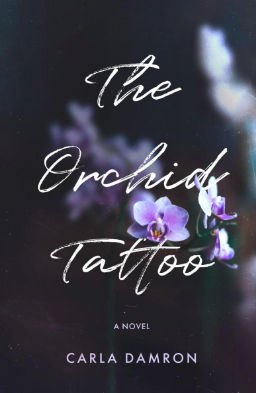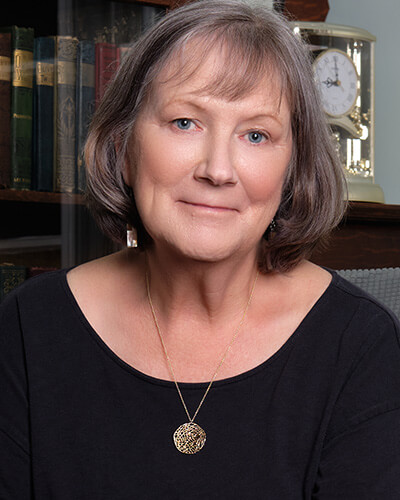 A social worker’s perilous journey to avenge her sister
A social worker’s perilous journey to avenge her sister
COLUMBIA, S.C. – Award-winning author and social worker Carla Damron, named by NAMI as an Outstanding Mental Health Professional of the Year, uses fiction to address social justice issues, and her latest release is no exception. Emotion-driven, The Orchid Tattoo (Koehler Books, Sept. 30, 2022) is one part of Damron’s work as an advocate for human trafficking survivors and people with mental illnesses. Her previous work includes The Stone Necklace, winner the 2017 Women’s Fiction Writers Association Star Award for Best Novel, which led award-winning author Pat Conroy to say “this is a novelist to be read again and again.”
In The Orchid Tattoo, social worker Georgia Thayer can balance her own mental illness with the demands of an impossible job. Mostly. But when her sister vanishes in the dead of night, her desperate quest to find Peyton leads to a multi-tentacled human trafficking network. When Georgia learns that her sister was brutally murdered trying to help a young victim called “Kitten,” she picks up where Peyton left off, and travels a treacherous path to expose the kingpin of the Estate, a luxurious brothel servicing rich and powerful men, and rescue his victims. Kitten is determined to escape. She won’t be trapped like the others. She won’t sell her soul like Lillian, victim-turned-madam, feeding the dark appetites of international business moguls and government leaders. Aided by Kitten, Georgia maneuvers to bring down the Estate and expose its dark secrets, but her efforts place her–and the very few people she allows to get close–in grave danger.
“The Orchid Tattoo”
Carla Damron | September 6, 2022 | Koehler Books | Crime Fiction
Hardcover | $32.95 |978-1-64663-765-2
Paperback | $21.95 |978-1-64663-763-8
E-Book | $7.99 | 978-1-64663-764-5
 Carla Damron: Carla Damron is a social worker, advocate and author whose last novel, The Stone Necklace (about grief and addiction) won the 2017 Women’s Fiction Writers Association Star Award for Best Novel and was selected as the One Community Read for Columbia SC. Damron is also the author of the Caleb Knowles mystery novels and has published numerous short stories, essays, and op-eds. Damron holds an MSW and an MFA. Her careers of social worker and writer are intricately intertwined; all of her novels explore social issues like addiction, homelessness, mental illness, and human trafficking. In her spare time, Damron volunteers with the ›League of Women Voters, Sisters in Crime, Palmetto Chapter (President), her church, and Mutual Aid Midlands. Find out more about her at http://carladamron.com.
Carla Damron: Carla Damron is a social worker, advocate and author whose last novel, The Stone Necklace (about grief and addiction) won the 2017 Women’s Fiction Writers Association Star Award for Best Novel and was selected as the One Community Read for Columbia SC. Damron is also the author of the Caleb Knowles mystery novels and has published numerous short stories, essays, and op-eds. Damron holds an MSW and an MFA. Her careers of social worker and writer are intricately intertwined; all of her novels explore social issues like addiction, homelessness, mental illness, and human trafficking. In her spare time, Damron volunteers with the ›League of Women Voters, Sisters in Crime, Palmetto Chapter (President), her church, and Mutual Aid Midlands. Find out more about her at http://carladamron.com.
Follow Carla on social media
Facebook: @carladamronwrites | Twitter: @carlawritesfic | Instagram: @damroncarla
In an interview, Carla Damron can discuss:
- Using fiction to fight human trafficking and bring light to the 40.3 million victims worldwide.
- The importance of representation in literature for those with mental illnesses
- Her work as an advocate for human trafficking survivors
- The process of writing crime fiction grounded in important social justice issues
- Representing diverse communities through her writing
An Interview with Carla Damron
How do you use your social work background in your writing?
My social work background is what drives my writing. Social issues that take a toll on the people I’ve served–mental illnesses, homelessness, addiction, and human trafficking–compel me to dive deep into the root causes of these problems.
I strive to put a human face on these complex problems in my fiction, and try to show that our hope to resolve them also has a very human face.
Is human trafficking a big issue in your home state of South Carolina?
Last year, there were 206 reports of human trafficking in SC–up 15% from last year. It’s a big problem everywhere: The Polaris Project reports that there are 40.3 MILLION victims globally. Why? Because it’s a hugely profitable crime, netting $150 billion worldwide. We’ve come a long way in combatting this crime, but we still have so far to go.
How are people with mental illnesses portrayed in fiction? How did you work to come up with an accurate portrayal?
People with psychiatric disorders can easily become cliche in fiction–particularly crime fiction. I worked very hard to offer a realistic portrayal of someone with a mental illness who refuses to be defined by it. Georgia Thayer, my protagonist, hears voices, but she lives her life. She has a successful, difficult career and a support system, and uses her personal experiences to help her patients. Georgia’s symptoms recur, but she manages them. Mostly.
What is something that would be surprising for people to learn about human trafficking and why is awareness of the subject so important?
People may think that traffickers forcibly kidnap their victims. While this sometimes happens, traffickers usually manipulate and groom them, playing on their vulnerabilities. I show several examples of how this process works in The Orchid Tattoo.
What have you learned as a writer from writing multiple books?
Each book has taught me something–about the writing process and about myself. I’ve learned how important it is to connect with readers, and I do that by creating characters that feel real to them and by story-telling that keeps them turning pages. I can’t say the process gets easier–the more I know about writing, the harder it is–but I love this career and the doors it’s opened up for me.
What do you want readers to take away from your novel?
I want readers to come away from The Orchid Tattoo with a better awareness of the prevalence of this crime. Trafficking doesn’t just happen overseas, it can happen in my neighborhood. It can happen to kids at my local middle school. But I also want readers to leave with a sense of what they can do to impact this crime–through awareness and vigilance. And, of course, I want the reader to be entertained. The Orchid Tattoo is a stormy, wild ride that builds to an explosive, satisfying end. If I engage, entertain, and educate my readers, I’ve done my job.

A former award-winning journalist with national exposure, Marissa now oversees the day-to-day operation of the Books Forward author branding and book marketing firm, along with our indie publishing support sister company Books Fluent.
Born and bred in Louisiana, currently living in New Orleans, she has lived and developed a strong base for our company and authors in Chicago and Nashville. Her journalism work has appeared in USA Today, National Geographic and other major publications. She is now interviewed by media on best practices for book marketing.
